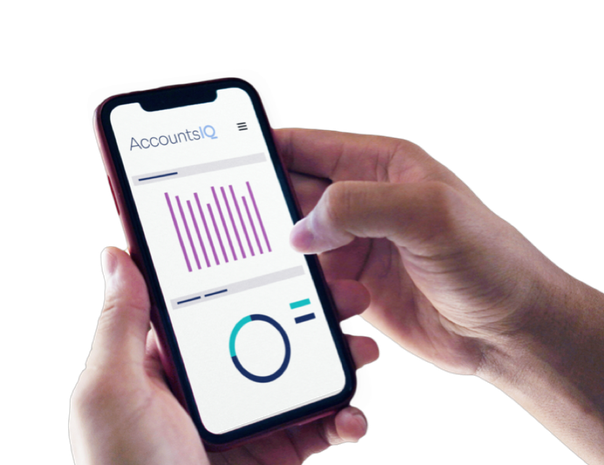What is Cloud Accounting and Cloud Accounting Systems?

What is cloud accounting?
Cloud accounting involves the use of an online system which is accessed remotely via the internet. Some of the key purposes of cloud accounting are the same as traditional or on-site desktop accounting systems; the software is used to carry out core accounting functions like accounts payable and receivable and invoices. However, cloud accounting software also often allows more complex tasks to be performed, for example the automatic production of smart reports.
How does cloud accounting work?
The basis of a cloud accounting system is an online system, hosted remotely on the cloud and accessed via the internet. You’re able to use the system from anywhere in the world, as long as you have an internet connection. The software allows you to carry out basic accounting tasks like bookkeeping and managing accounts payable and receivable. More advanced systems also provide a wider range of accounting functions. The financial data is stored remotely in the cloud rather than on the hard drive of a particular computer.
What’s the difference between cloud accounting and traditional accounting softwares?
Cloud and traditional accounting softwares are intended to serve the same essential purpose, but they operate in very different ways. Some of the key differences between cloud accounting and traditional desktop accounting are:
- Desktop accounting systems can only be used on the particular device to which they’re downloaded, whereas cloud accounting software can be accessed from anywhere
- Cloud accounting systems are flexible and scalable, so they can be customised to suit the needs of the company using them, while traditional accounting software is more rigid
- All cloud accounting platforms have their own built-in security systems which are regularly updated, whereas desktop accounting relies more on the user to ensure security
- The costs of traditional and cloud accounting systems are different. The desktop software is purchased at a higher price up front, and replaced when necessary, while the cloud accounting software is usually paid for on a monthly subscription basis.
What common issues in traditional accounting software do cloud accounting systems resolve?
Traditional desktop accounting systems appear increasingly limited when compared to cloud accounting software. Some of the issues which can be solved by cloud accounting include:
- Accessibility: Traditional accounting software is only available from desktops which it is downloaded onto, whereas cloud accounting is accessible from any internet-connected computer or device.
- Scalability: Cloud accounting software is flexible and can be adapted readily as a company grows and changes, solving some of the issues caused by the rigidity of traditional accounting systems.
- Efficiency: Cloud accounting allows for a higher level of automation than traditional accounting systems, meaning that many functions and tasks are carried out with just a few clicks.
Is your financial data secure with cloud accounting?
When learning about cloud accounting, one of the doubts some people may have relate to the security of their data. Of course, financial information needs to be kept as securely as possible. However, cloud accounting is just as secure, and often is more secure, than other kinds of accounting systems. Providers of cloud accounting software make updates and improvements to their products regularly, and so your software package will most likely be subject to regular security updates which ensure you have up to date protection.
What are the benefits of cloud accounting?
Some of the key benefits of cloud accounting software include:
- The ability to access the software from anywhere in the world
- Saving time through automation and streamlined processes
- Higher quality insights thanks to smart reporting
- Easier collaboration between colleagues, as multiple users can access the system, often with their own personalised dashboards
- Cloud accounting systems can be integrated with other applications, such as CRM and payroll systems, to become more multifunctional
- Most cloud accounting systems are set up to be fully compliant with taxation regulations.
What companies can benefit from cloud accounting?
There are a number of company types and structures which particularly benefit from the best Cloud accounting software, usually because they are more complex, and cloud accounting can simplify what would otherwise be tricky and over complicated processes. Some of these types of companies are:
- Start-ups and companies started by tech entrepreneurs
- Accounting firms
- Multi-company groups with complex multi-entity structures
- Franchises
- Charities
- Schools.
What industries can benefit from cloud accounting?
The industries which benefit the most from using cloud accounting software systems are often those which have more complex financial situations, and those on the cutting edge of technology and industry. Cloud accounting allows companies operating in these fields to manage their finances with greater ease, accuracy and efficiency. Some of the industries which can benefit are:
- Hospitality
- Financial services and fintech
- Recruitment
- Renewable energy and new technologies
- Media and publishing.
When can companies utilise cloud accounting?
Any company can use cloud accounting software for a multitude of purposes, but it’s especially useful for a number of particular occasions and needs. When there are changes to tax regulations such as the introduction of Making Tax Digital, cloud accounting systems can help you adapt to ensure you remain compliant. For multi-company groups and international businesses who are carrying out reporting, cloud accounting can automatically consolidate multiple subsidiaries and convert between currencies to produce smart reports for the whole organisation. When a business is expanding, cloud accounting allows the flexibility and adaptability it needs to add new functions to deal with increased capacity.
Speak to an expert to see how AccountsIQ can transform your finance function
Get in touch



